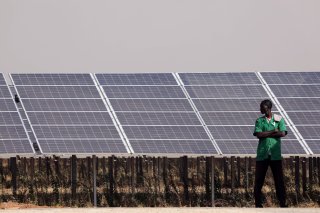Can We Align Third World Development with Net Zero?
Given that the majority of future carbon emissions will come from the developing world, the question of what the developed world might do about this should be central to every climate policy discussion—and yet it isn’t.
NO MATTER what policies the developing world ultimately decides to pursue, several axioms will hold true: the outlook for clean technology gets better every year, and the economy of the future will be low-carbon. Despite this, getting there will demand proactive cooperation between the developed and developing world. In industrializing countries, this means leadership and fiscal policy. In the West, this means investment and institution-building.
So much is wrapped up in our global push for decarbonization; its role in the fight against climate change, of course, will be huge. But just as importantly, it has the potential to remake the world order. First movers in clean technology will be granted immense economic leverage. Those who lag behind will find their influence greatly reduced. In both wealthy and lower-income nations, the decisions we make today—in our energy investments, in our trade partnerships, and with our climate policies—will have an extraordinary impact on our global standing tomorrow.
Thomas Hochman (@thomashochman) is a Fellow at Citizens’ Climate Lobby. His work has been featured in The National Interest, The Washington Examiner, and a number of other outlets.
Image: Reuters.

